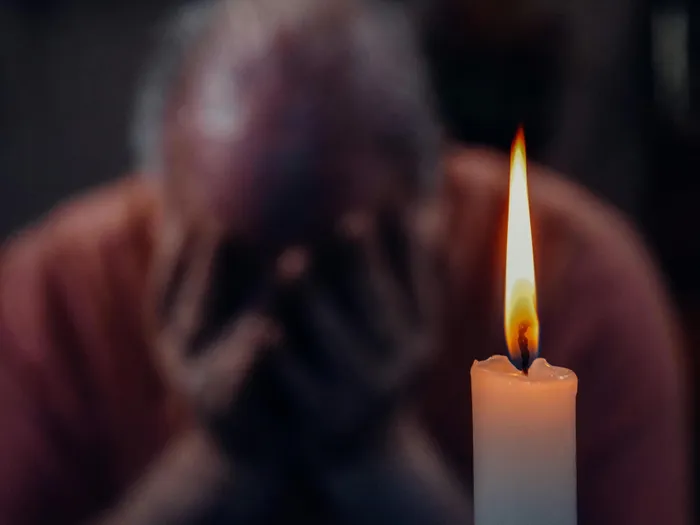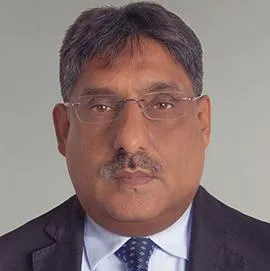When hearts break: understanding the journey through grief
Emotions

Grief is the natural emotional response to losing someone precious to us.
Image: Kindel Media/Pexels.com
THE phone call came at 3am. Priya's father had passed away suddenly. As she sat by his bedside, holding his still-warm hand, she wondered: "What happens now? How do I navigate this overwhelming pain?"
If you've experienced loss, you know this feeling – the moment when life as you knew it changes forever.
The universal language of loss
Grief is the natural emotional response to losing someone precious to us. It's universal, yet deeply personal – encompassing the complex emotions we feel when saying goodbye to a parent, spouse, child, or sibling.
Whether it's Raj, who lost his mother and found himself angry at everyone, or Shireen, who after losing her husband kept setting his place at the dinner table for months, these are not signs of weakness – they are the heart's way of processing the unprocessable.
Beyond the familiar experiences, there's anticipatory grief (mourning before loss occurs), complicated grief (when healing does not progress naturally), and disenfranchised grief (loss that society does not acknowledge, like miscarriage or an ex-spouse's death).
Understanding grief models: the winding path
Different frameworks help us understand grief's complexity.
Dr Elisabeth Kübler-Ross's original five stages – denial, anger, bargaining, depression, and acceptance – remain widely referenced. Some practitioners use a seven-stage model, adding shock and testing/reconstruction for a more detailed framework.These stages are not linear stops but rooms in a house you might visit repeatedly, sometimes spending days in one, sometimes moving between several in a single hour.
Everyone grieves differently, and stages don't follow a specific order. Denial protects us from overwhelming reality. Anger gives us energy when we feel powerless. Depression acknowledges loss's depth. Acceptance means learning to carry loss differently, not being "fine."
The burden of hindsight: "If only I had known"
"Ma kept saying she was tired. I thought she was just getting older," Arjun reflects months after his mother's sudden heart attack.
"She mentioned chest discomfort, but I told her it was probably acidity. Now I replay every conversation, every sign I missed."
This is grief's cruelest companion – the clarity that comes too late. We become detectives of our own regret, analysing every word our loved one made in their final days. The signs were often there – unusual fatigue, quiet comments about feeling unwell, subtle behavioural changes. At the time, these felt like normal conversations.
In grief's harsh light, they become prophecies we failed to heed. The "what ifs" become a second layer of suffering.
"If I had made him go to the doctor sooner..." "If I had been there..."
But here's what we must remember: we're not medical experts – we're family members seeing loved ones through the lens of normalcy, hope, and the assumption that tomorrow will come.
Cultural roots: how community shapes healing
In Indian culture, grief is expressed openly and communally. When Lakshmi lost her husband, her entire neighbourhood appeared – bringing food, sharing stories, sitting in silence with her. Family members, friends, and neighbours gather to support one another, offering comfort through presence and shared sorrow. This communal approach has profound healing benefits.
Rituals like the 13-day mourning period, collective prayers, and community meals provide structured support systems. The bereaved are constantly reminded they are not alone. This contrasts with individualistic approaches where grief might be experienced in isolation, showing how cultural context shapes our healing journey.
Grief as process: why your way is valid
Modern grief understanding suggests we don't "get over" grief – we grow around it. The grief remains the same size, but as we develop, it occupies less space in our lives. Think of learning to carry a heavy stone – initially unbearable, but gradually you develop strength to carry it while navigating life.
Some people find comfort in ritual and ceremony. Others need solitude. Some talk constantly about their loved one; others can barely speak their name. Your way of grieving is valid, whether you're organising funeral details or need to step away from crowds.
The closest circle and timeline questions
Those closest to the deceased experience grief most intensely because they shared intimate bonds, daily routines, and emotional connections. When Ravi lost his wife, he grieved not just her presence but their morning conversations, her laughter, their planned future. The closer the relationship, the more life areas are affected.
There's no standard timeline for grief. Some find moments of peace within months; others need years. When someone says, "I'm fine," they might mean they're functioning, not healed. Be gentle with yourself and others navigating this process.
Recognising grief's impact: symptoms and "grief brain"
Grief affects us physically (fatigue, sleep disturbances, appetite changes), emotionally (sadness, guilt, anger, anxiety, numbness), mentally (the "grief brain" includes concentration difficulties, memory problems, confusion), and behaviourally (social withdrawal, restlessness, crying spells).
The cognitive fog and emotional rollercoaster are real and temporary, though they may persist for months. Understanding these symptoms helps normalise the grief experience.
Practical tools: the three Cs framework
When grief makes everything feel chaotic, the Three Cs provide direction:
- Choose: Make conscious decisions about healing. Choose patience with grief brain, honour emotions rather than fighting them, choose supportive activities and people.
- Connect: Maintain connections with supportive people, even when isolation feels easier. Connect with memories healthily and seek professional help when needed.
- Communicate: Express needs to family and friends, communicate your grief experience, set boundaries about what helps and what doesn't.
The privacy of pain and seeking support
Many find grief deeply private because it feels too raw to share, others' attempts to "fix" pain feel inadequate, society expects quick recovery, or the relationship was uniquely theirs. Privacy in grief isn't antisocial – it's protective.
Professional counselling becomes valuable when grief significantly interferes with daily functioning, when you feel stuck in intense pain, have thoughts of self-harm, or turn to unhealthy coping mechanisms. Counselling doesn't replace grief – it provides tools for navigating it effectively while honouring cultural values.
Finding your way forward: what would they want?
As you navigate this journey, consider: Would your departed loved one want to see you consumed by endless guilt and prolonged anguish?
Picture their pride in your achievements, their concern during struggles, their gentle encouragement in difficult moments. The same love that made losing them so painful would not want you trapped in guilt or endless suffering. This does not mean rushing through grief or pretending you are fine.
It means honouring their memory by eventually finding ways to live meaningfully, remembering that love – even love that feels incomplete – is always enough. Your loved one's greatest wish would likely be for you to find peace, be kind to yourself about missed signs and unspoken words, and remember that your grief matters, your timeline is valid, and seeking support is wisdom, not weakness. We have all been there, in some way or the other.
In loving memory of all those whose absence shapes our present and whose love continues to guide our future.

Sanjith Hannuman
Image: File
Sanjith Hannuman is the managing director of Avinash Consultants & Actuaries.